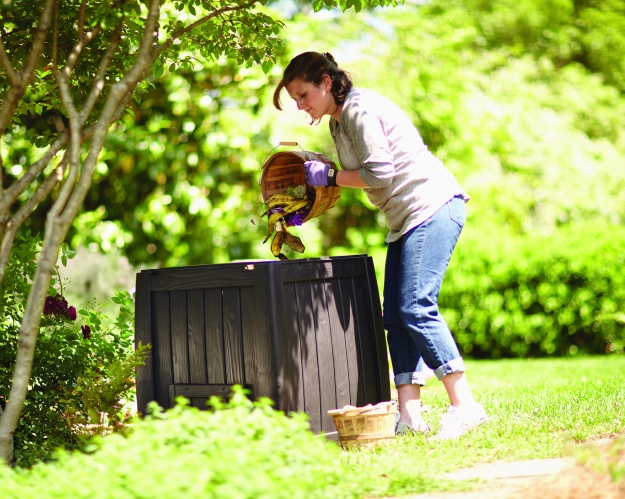What if trucks could haul away greenhouse gases as easily as they cart off recyclables? It sounds too good to be true, but dozens of US cities, including nearby Cambridge, are doing just that by picking up bins of food scraps on trash day.

You see, when food scraps get buried in a landfill, special bacteria that thrive in the oxygenless environment feast on the scraps, producing the potent greenhouse gas methane. (Sending the trash to be burned to produce electric power, as Quincy does, produces fewer net greenhouse gases, but still more than food-scrap recycling programs. And because the food in Quincy’s trash is rich in water, it probably takes as much energy to burn as it creates, if not more.)
The effects of food waste on the climate can be huge. Landfills belch out 15% of the human-made emissions of methane in the US, and food scraps make up nearly a quarter of the country’s trash. Instead of being wasted, the scraps could be turned into compost that is good for the soil and/or processed in anaerobic digesters that capture the gases generated as the scraps decompose. These biogases can then be burned instead of fossil fuels to produce electric power, producing fewer overall greenhouse gases. Composting can also displace chemical fertilizers that take energy – i.e., fossil fuels – to produce.
Recycling food waste is cheaper, too. Cambridge, for example, pays about $100 to throw away a ton of trash but only $65 for a ton of food waste (Quincy currently pays $69/ton of trash). In many communities, diverting food waste from trash cans means other garbage can be collected less often, saving money and producing fewer greenhouse-gas emissions from trucks.
For all these reasons, we at QCAN are hoping the city will start up a food-waste collection program. We met with Mayor Thomas Koch to discuss the prospect in September 2017. If you’d like to help in this effort, please email us at info@QuincyCAN.org or come to one of our monthly meetings. Together, we can turn each person’s trash into our community’s treasure!
Updated on Oct. 1, 2018, with the latest trash and food-waste costs from Cambridge.
